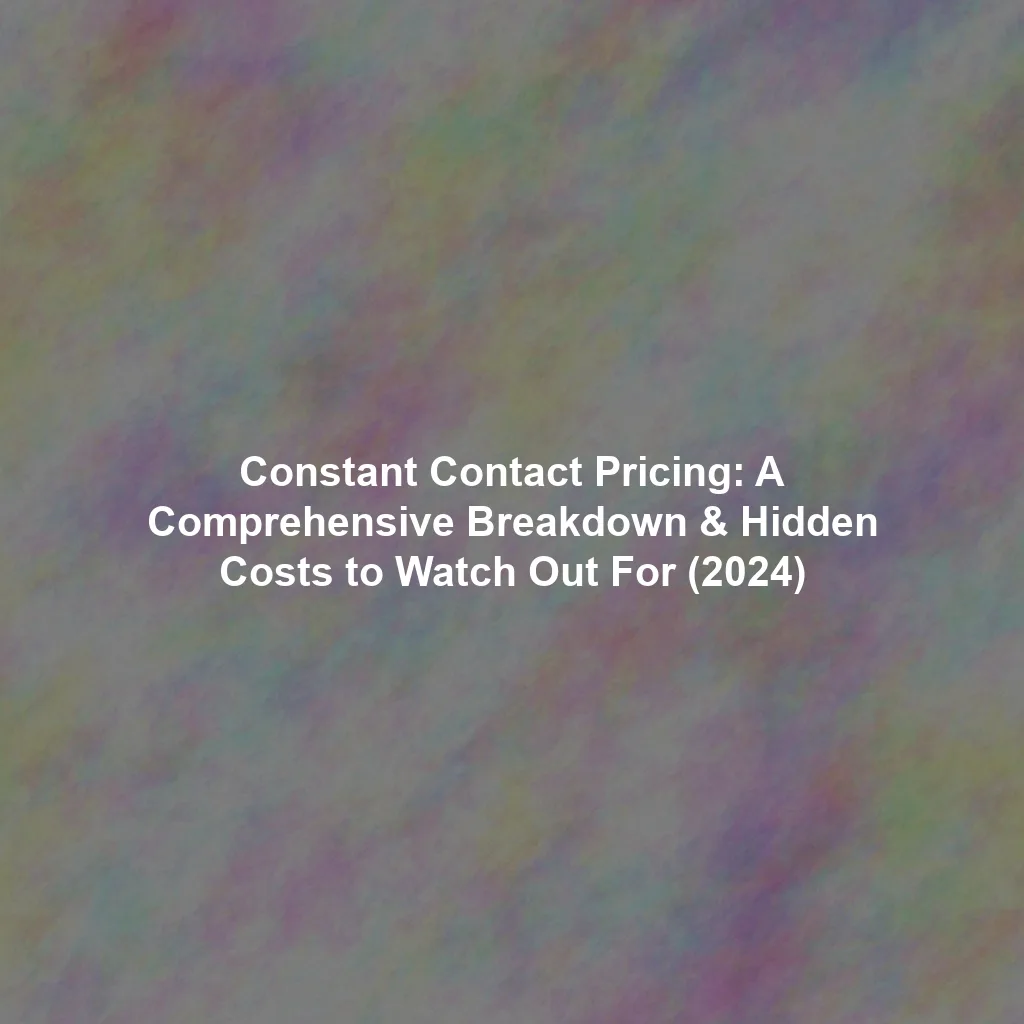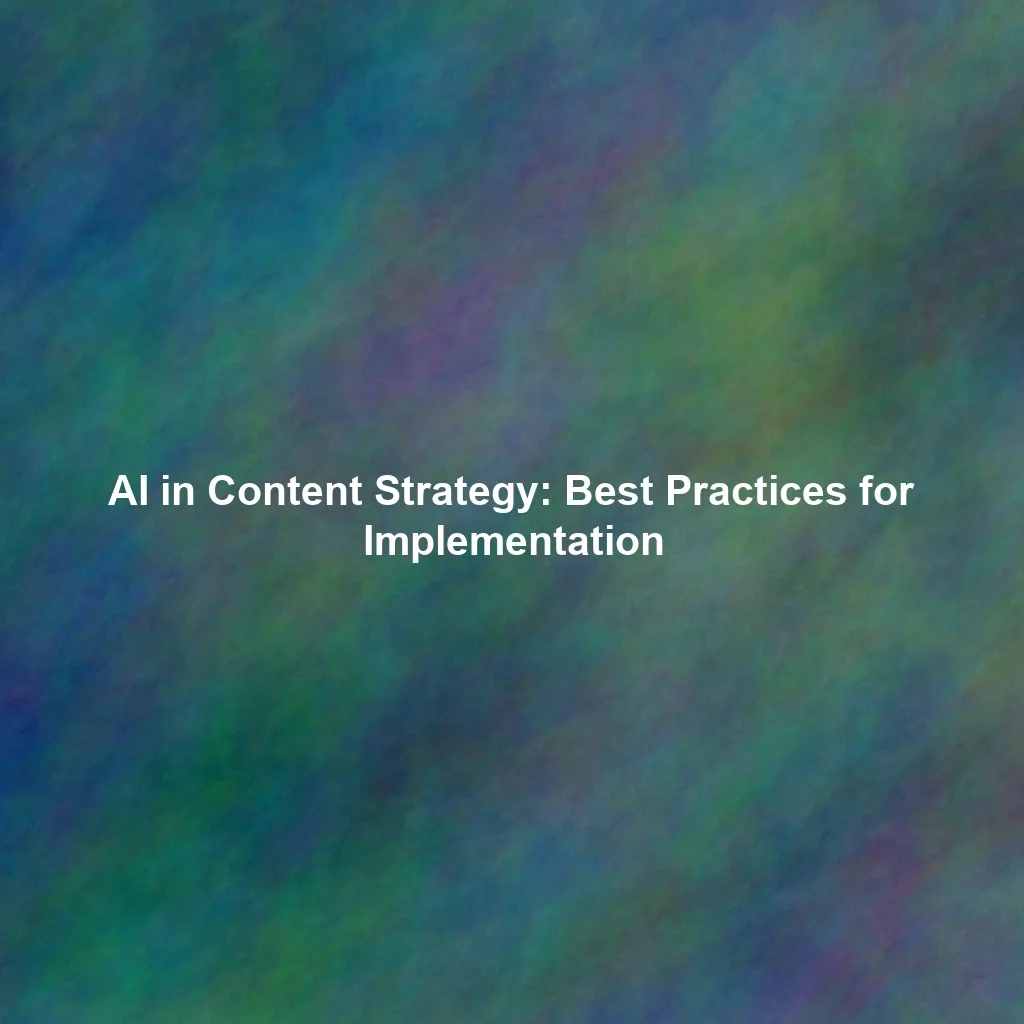Choosing the right email marketing platform is crucial for business success. Constant Contact is a popular choice, known for its user-friendly interface and robust features. But before you jump in, understanding its pricing structure is essential to avoid unexpected costs and maximize your return on investment. This article provides a comprehensive breakdown of Constant Contact’s pricing plans, uncovers potential hidden costs, and offers guidance on selecting the most cost-effective plan for your specific business needs in 2024.
Understanding Constant Contact’s Pricing Plans
Constant Contact offers tiered pricing plans primarily based on the number of contacts you have. This means the more contacts in your list, the more you’ll pay. While this is standard practice for email marketing platforms, it’s vital to understand the specific tiers and what they include.
Current Pricing Tiers (as of October 2024 – Subject to Change)
Note: Pricing information is current as of October 2024 but is subject to change by Constant Contact. Always verify directly on Constant Contact’s website for the most up-to-date information.
| Plan Name | Starting Price (Based on 500 Contacts) | Key Features |
|---|---|---|
| Lite | Around $12/month | Email Marketing, Basic Automations, Simple Reporting, Social Posting |
| Standard | Around $35/month | Everything in Lite, plus more advanced Email Marketing, Dynamic Content, Better Automations, Detailed Reporting, Landing Pages |
| Premium | Around $80/month | Everything in Standard, plus advanced e-commerce integrations, segmentation, multi-user access, personalized onboarding, SMS Marketing. |
These prices are just starting points. As your contact list grows, the monthly cost increases. Constant Contact offers calculators on their website to help you estimate costs based on your specific number of contacts.
Features Included in Each Tier
- Lite: Ideal for very small businesses just starting with email marketing. Limited features make it best for simple newsletters and announcements.
- Standard: A good choice for growing businesses that need more advanced features such as automated email sequences, dynamic content to personalize messaging, and landing pages.
- Premium: Designed for established businesses needing advanced segmentation, robust ecommerce integration, and team collaboration features. Also the only plan that includes SMS marketing.
Hidden Costs to Watch Out For
While Constant Contact’s pricing seems straightforward, several potential hidden costs can impact your overall expenses.
Exceeding Contact Limits
This is the most common “hidden” cost. If your contact list grows beyond your plan’s limit, you’ll be automatically upgraded to the next tier, increasing your monthly bill. Regularly clean your contact list to remove inactive subscribers to avoid paying for contacts you’re not actually engaging with.
Add-ons and Integrations
While Constant Contact integrates with many platforms, some integrations or advanced features might require additional fees. Carefully review the pricing for any add-ons you might need.
Support Costs (Potentially)
While Constant Contact offers excellent customer support, premium onboarding assistance or dedicated account managers may come at an extra cost. Check if your plan includes the level of support you require.
Renewal Pricing
Be aware of introductory offers that expire after a certain period. Your monthly fee could increase significantly upon renewal. Review your contract details carefully.
Choosing the Right Constant Contact Plan
Selecting the appropriate plan depends on your business size, marketing needs, and budget. Here’s a framework to help you decide:
Assess Your Current Needs
Start by evaluating your current email marketing requirements. How many contacts do you have? What features do you need (automation, segmentation, landing pages)? What’s your budget?
Consider Future Growth
Think about your business growth projections. How quickly do you expect your contact list to grow? Choose a plan that can accommodate your future needs without immediately pushing you into a higher (and more expensive) tier.
Take Advantage of Free Trials
Constant Contact often offers free trials. Use this opportunity to test the platform and its features to see if it aligns with your requirements before committing to a paid plan.
Don’t Overlook Features You Don’t Need
It’s tempting to choose a plan with all the bells and whistles, but you might end up paying for features you never use. Focus on the features that are essential for your current and short-term marketing goals.
Constant Contact Competitor Comparison
Before making a final decision, compare Constant Contact’s pricing and features with those of its competitors, such as Mailchimp, ConvertKit, and GetResponse. Each platform offers different pricing structures and features, so find the one that best fits your specific needs and budget. Mailchimp, for instance, offers a free plan (with limitations) that might be suitable for very small businesses.
Strategies for Maximizing Value with Constant Contact
Once you’ve chosen a plan, here are some strategies to maximize its value:
Regularly Clean Your Contact List
Remove inactive subscribers to reduce your contact count and avoid paying for non-engaged users. This also improves your email deliverability rates.
Utilize Automation Features
Automated email sequences can save you time and improve your marketing effectiveness. Set up welcome emails, birthday emails, and other automated campaigns.
Segment Your Audience
Segment your contact list based on demographics, interests, or behavior to send targeted and personalized emails that resonate with your audience. This will greatly improve engagement.
Track Your Results
Use Constant Contact’s reporting tools to track your email open rates, click-through rates, and conversions. This data will help you optimize your campaigns and improve your ROI.
Conclusion
Constant Contact can be a powerful email marketing tool, but understanding its pricing structure and potential hidden costs is crucial for making an informed decision. By carefully assessing your needs, considering future growth, and comparing Constant Contact with its competitors, you can choose the most cost-effective plan and maximize your return on investment. Remember to regularly review your usage and adjust your plan as your business evolves.
 Skip to content
Skip to content

